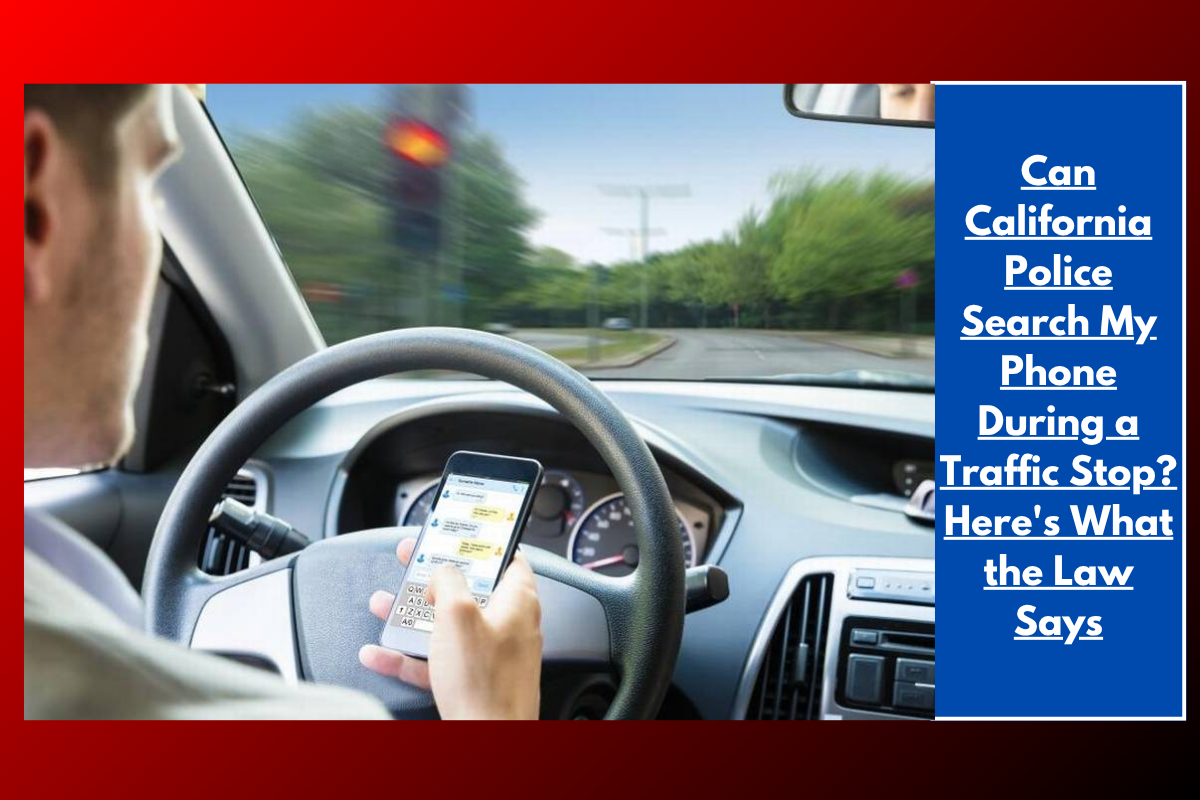If you’ve ever wondered whether California police can search your phone during a traffic stop, you’re not alone. With increasing concerns about privacy and digital security, many drivers are unsure of their rights when it comes to law enforcement accessing their personal devices. So, can California police search your phone during a traffic stop? Let’s dive into what the law says.
The Short Answer: Generally, No, Without a Warrant
Under California law, as well as federal law, police officers cannot search your phone without a warrant. The Fourth Amendment of the U.S. Constitution protects you against unreasonable searches and seizures. This means that, in most cases, law enforcement must have probable cause and obtain a warrant before they can search your phone.
The Key Legal Precedent: Riley v. California (2014)
The landmark Supreme Court case Riley v. California in 2014 clarified the issue of phone searches. In this case, the Supreme Court ruled that police cannot search the contents of your phone during an arrest without first obtaining a warrant. This ruling applies to all types of cell phones, whether they are smartphones or older models, and it established that cell phones contain such vast amounts of personal data that searching them without a warrant would be a violation of privacy rights.
When Can Police Search Your Phone?
Although police typically need a warrant to search your phone, there are limited exceptions where they may still be able to do so during a traffic stop. These exceptions include:
Consent: If you voluntarily give permission to the police to search your phone, they can do so without a warrant. However, it’s important to remember that you do not have to consent to a search. If you refuse, the police would need a warrant to proceed.
Exigent Circumstances: In certain emergency situations, police may be able to search your phone without a warrant if they believe that evidence is at risk of being destroyed or if there is an immediate threat to public safety. However, this is a rare exception and typically requires clear justification.
Incident to Arrest: If you are arrested during the traffic stop, police may be able to search your phone, but only if they can show that the search is related to the arrest. For instance, if they suspect that your phone contains evidence of a crime that you are being arrested for, they might be able to search it. However, even in this case, they would generally need a warrant unless the search is directly tied to the arrest.
Can Police Take Your Phone and Get a Warrant Later?
If the police take your phone during a traffic stop, they cannot search it immediately without a warrant. However, they may hold onto it and seek a warrant to search it later if they have probable cause to believe it contains evidence of a crime. They cannot simply use a traffic stop to randomly search your phone without legal justification.
What Should You Do If Police Ask to Search Your Phone?
If law enforcement asks to search your phone during a traffic stop, you have the right to refuse unless they have a warrant or you have been arrested. If you choose to refuse the search, it is advisable to politely inform the officer that you do not consent to the search. You can say something like:
“I do not consent to a search of my phone.”
Know Your Rights
In California, police cannot search your phone during a traffic stop without a warrant or your consent. The Fourth Amendment provides strong protections for your privacy, and the Riley v. California ruling ensures that law enforcement must follow proper legal procedures before accessing your digital data.
However, be mindful of the exceptions to this rule, such as consent or exigent circumstances. If you’re ever unsure about your rights during a traffic stop, it’s always a good idea to calmly assert your right to remain silent and your right not to consent to searches.
SOURCES
[1] https://www.roadrunnerfootandankle.com/blog/1186677-driving-barefoot-in-arizona-risks-and-foot-complications
[2] https://www.superlawyers.com/resources/traffic-violations/driving-barefoot-is-it-legal/
[3] https://www.orentcriminallaw.com/blog/is-it-legal-to-drive-barefoot-in-arizona/
[4] https://www.thezebra.com/resources/driving/driving-barefoot/
[5] https://thewrangler.com/is-it-illegal-to-drive-barefoot-in-arizona-heres-what-law-says/2025/06/02/














